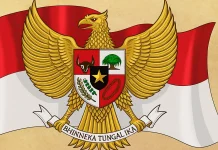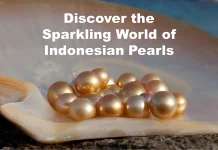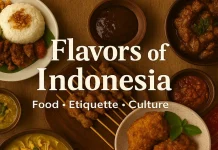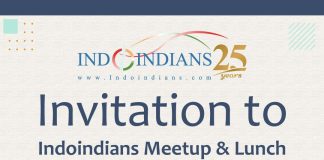Muslims in Indonesia always welcome the holy month of Ramadan with joy and is eagerly awaited. You can see it from the different rituals and traditions to welcome the fasting month.
These traditions have been practiced for long, and each tradition has its own meanings and are heavily influenced by the culture and norms of the respective areas or ethnicities from where they originate.
Here are 8 unique traditions to usher in Ramadan:
Nyadran or Nyekar – Java
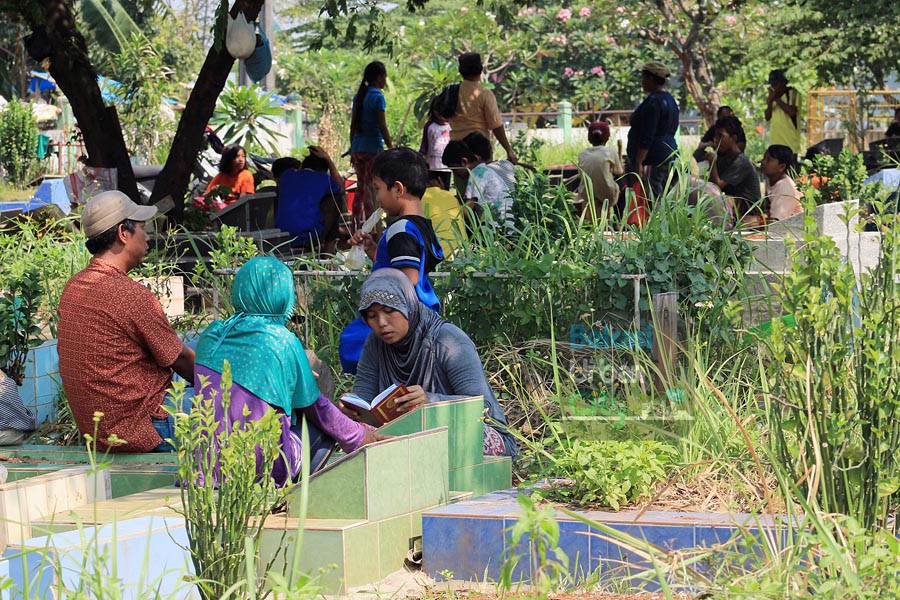
Nyadran is a Javenese tradition in welcoming the holy month of Ramadhan. People will visit the grave of their family and ancestors days before Ramadan comes. They will lay flowers on the graves, clean up the area around the graves and send them prayers. Do not be surprised if Muslim cemeteries in Indonesia are packed with visitors during the last days of Syaban (the month before Ramadan in Islamic calendar).
Dugderan – Central Java
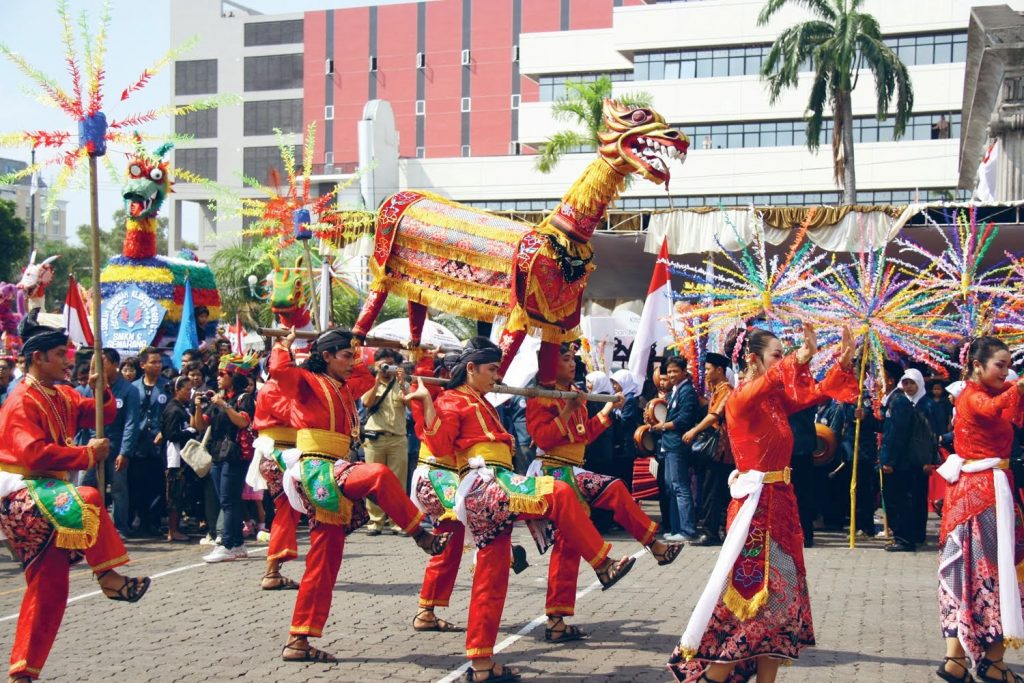
Dugderan was first practiced by Semarang people in 1881 to determine the first day of Ramadan. Now in the modern days, Dudgeran is seen as a folk party with a long parade. However, the highlight of this event remains the same: a ritual to determine the first day of fasting in Ramadan. This event has a special mascot called Warak Ngendog. Warak Ngendok is a goat with dragon’s head statue. The statue is completed with several boiled eggs as a symbol that the creature is laying eggs. This is related to the first Dudgeran in 1881, when Semarang was in a food crisis and eggs were such luxury for the residents.
Meugang – Banda Aceh
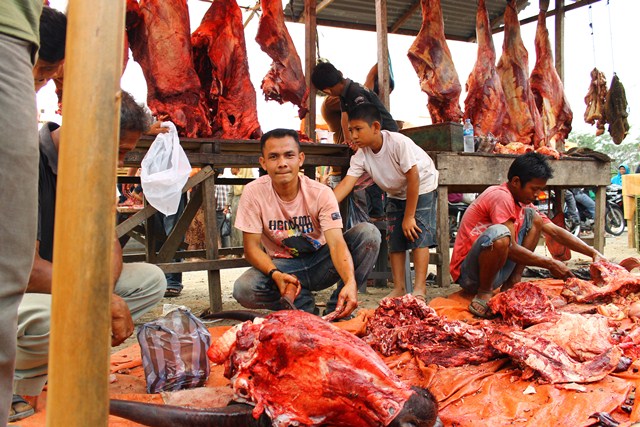
Meugang has been celebrated in Aceh since the throne of Sultan Iskandar Muda of Kerajaan Aceh. At that time, Sultan Iskandar Muda sacrificed a lot of animals and the meats were shared to the people before Ramadhan. Nowadays Meugang tradition is held three times a year: before Ramadan, Idul Fitri, and Iful Adha. People will cook meat and enjoy the cooking with families, friends, and orphans as a symbol of gratitude after 11 months of earning money for a living.
Balimau – Minangkabau, West Sumatera
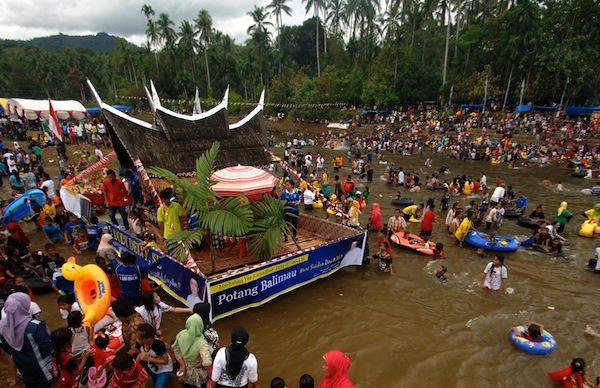
Balimau is a tradition where the people of Minangkabau are bathing in water with limau (lime). Usually this tradition is held in certain areas where there are the streams of river and bathing area. The meaning of Balimau is to cleanse one’s body and soul before entering the holy month of Ramadhan.
Nyorog – Betawi
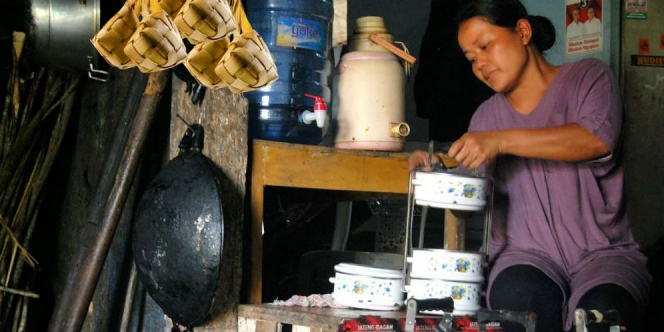
Nyorog is a Betawi tradition where people share food packages to older family members such as father, mother, uncles, or grandparents. Back then, the packages were filled with vegetables and cooked fishes, but nowadays people share a package of biscuit, instant coffees, sugar, syrup, tea, and many others. Nyorog tradition is considered as a reminder that Ramadhan is coming and people should strengthen their bonds with their families.
Megibung – Bali
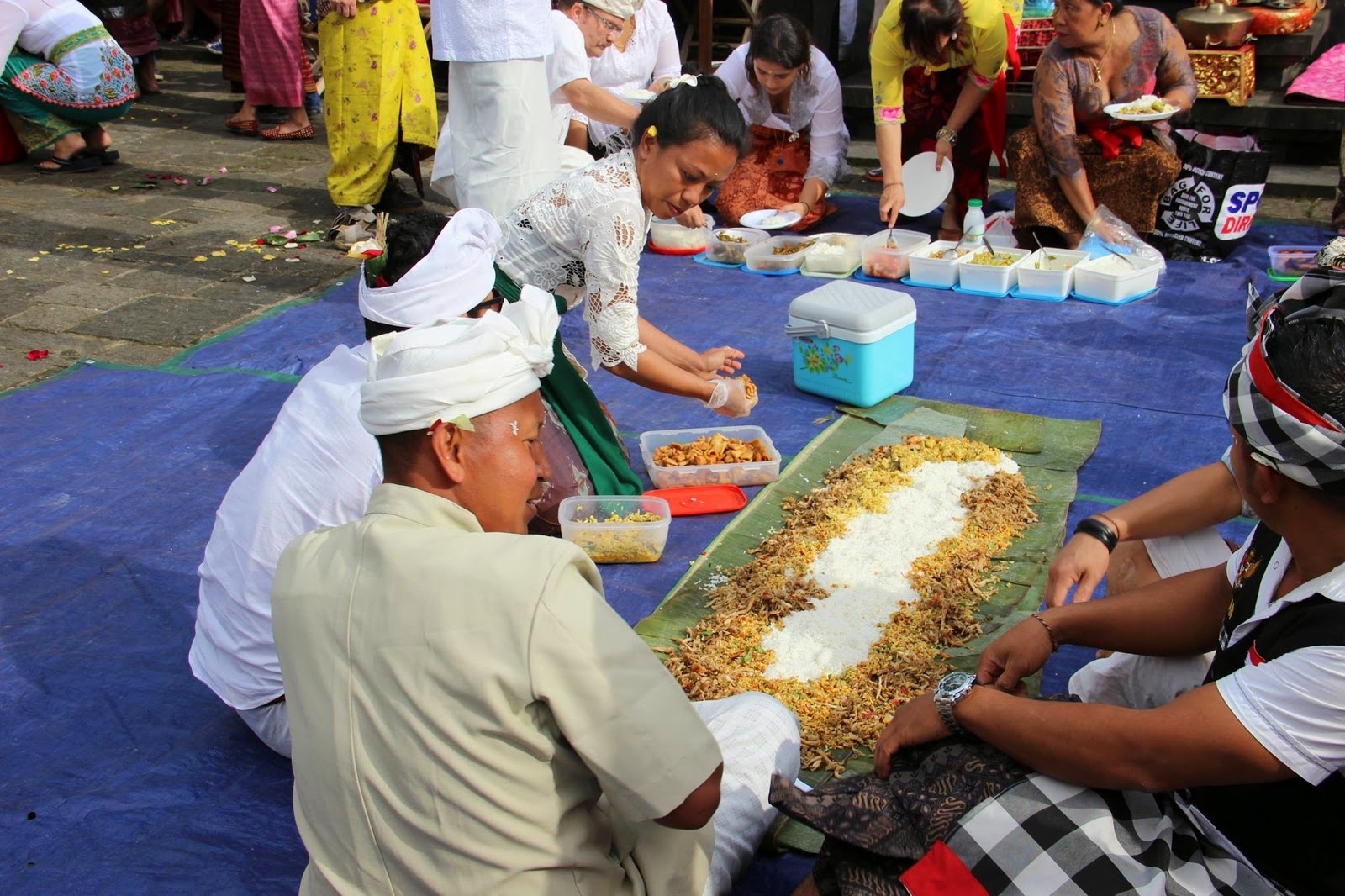
Muslims in Bali welcome the holy month of Ramadhan with Megibung. “Megibung” was derived from gibung which means sharing, sitting in circles and having a meal together with rice and dishes on a tray. This ritual is held at Kampung Islam Kepaon, Karangasem, East Bali at the 10th, 20th, and 30th day of Ramadhan. This ritual was introduced by the King of Karangasem, I Gusti Agung Anglurah Ketut Karangasem on the 17th century.
Megengan – East Java
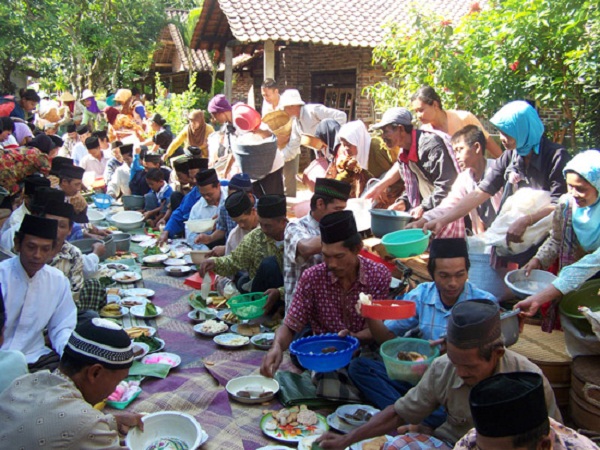
People in East Java, mainly in Tuban, Malang, and Surabaya hold Megengan tradition to welcome Ramadan. “Megengan” was derived from a Javanese word megeng, meaning “to hold”. The tradition is a reminder for people that Ramadan is coming, and they should refrain themselves from committing sins. During Megengan, people usually sit together in a mosque or field to pray together, visit the grave of their beloved, and then eat together. The tradition was also one of the methods to spread Islam in East Java a long time ago.
Malamang – West Sumatera
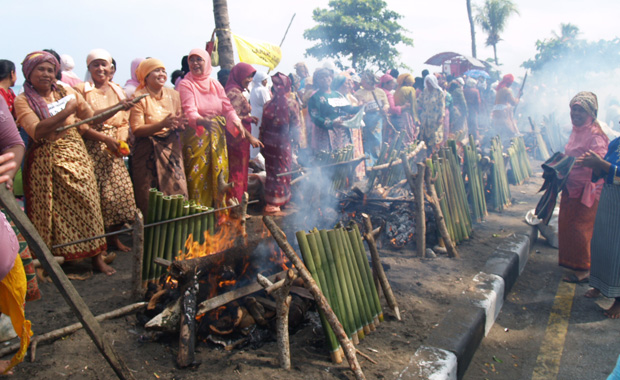
Malamang or cooking lemang (rice cake cooked in bamboo) has been a special tradition for Minangkabau people to welcome the holy month of Ramadan. During Malamang, people will gather in a field to make and roast the lemang together. The lemangs are then served with tapai sipuluik (fermented black glutinous rice) or durian flesh.
The ways people welcome Ramadan in Indonesia may be different, but all of these have similarities: they share togetherness, welcoming the month with joy, and hoping that the month will be blessed. The globalization and modernization will never lower their spirit to preserve the traditions.


